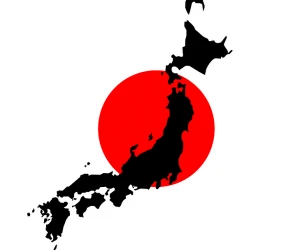Japan to probe illegal online casinos

The Japanese National Police Agency (NPA) plans to investigate offshore gambling operations that target Japanese players.
Locals often believe igaming sites with servers outside the country are legal. The sites typically mislead players, telling them the sites are either legal or have not been explicitly deemed illegal. They also assert their licensure in other countries to provide a veneer of legitimacy.
Gambling is limited in Japan
In Japan, it’s legal to play the lottery and also bet on horseracing, bicycle racing, motorcycle racing and powerboat racing. All other forms of gambling are illegal under Article 185 of the Penal Code.
The landscape will change dramatically in 2030, when the country’s first land-based casino opens in Osaka. The ¥1.08tn (£6.2bn/€7.348bn/$8.1bn) integrated resort (IR) will be open to locals who meet certain income requirements and pay a daily fee. Foreigners will enter for free.
But resort operator MGM Resorts expects locals will make up the lion’s share of patrons. The US-based company projects that MGM Osaka will draw 20 million people a year: six million tourists and 14 million Japanese visitors.
Lawmakers considered legalising online casinos as part of the 2018 IR Development Act. The law went into effect in 2021.
Online gambling in Japan surged during Covid
According to the NPA, online gambling in the country soared during Covid-19 shutdowns, especially among young people. In late 2018, digital analysis firm Similarweb Ltd tracked about 700,000 visits per month. That figure spiked to about 83 million monthly visits by the fall of 2021.
As gambling grows, so do concerns about the social costs. The Tokyo-based Society Concerned about the Gambling Addiction reported calls related to online gambling increased 372% between 2019 and 2023.
Calls related to legal gambling also rose during the period – 28.0% of callers enquired about bets on motorboat races, an increase of 22.7%. Calls about wagers on bicycle races comprised 18.2% of the total, up 15.5%. And 28.2% of calls concerned crimes committed to support a gambling habit, such as borrowing from loan sharks or stealing from family or employers.
The society also found that debts incurred by compulsive gamblers averaged ¥8.55m in 2023.
“The bar has been lowered,” the organisation warned. “And the number of young gambling addicts is only expected to rise in the years ahead.”
Access to gambling “cannot be unchecked”
A 29 August editorial in the Yomiuri Shimbun stated that some players are “[incurring] large debts via online casinos. In order to repay them, they apply for ‘dark part-time jobs’ [including] fraud and other crimes. The current situation in which people can freely access online casinos is serious and cannot be left unchecked.
“Some other countries, such as those in Europe, have introduced blocking measures to prevent access to illegal online casinos,” the editorial continued. “Japan should consider introducing such an approach as well.”
Rooting out the criminal element
Meanwhile, authorities are cracking down on online operators and their associates, wherever they find them.
In September, police in Tokyo and Aichi and Fukuoka prefectures (regional governments) arrested two people for allegedly facilitating online casinos payments. It was the first time anyone had been arrested on such charges. Police believe the suspects transferred tens of billions of yen and reaped some ¥2.1 billion in commission fees.
In February, seven people were arrested for operating an illegal online gambling site in Kyoto. Authorities estimate the site accepted ¥2.3 billion in deposits since it launched in 2011. As usual, site operators presented it as legal entertainment.
In June, Osaka police nabbed the ringleader of a major money-laundering operation that allegedly processed funds from a number of illegal activities, including online gambling.
The NPA investigation will inform future discussions on regulation and responsible gaming policies. In a statement, an agency representative said: “We will collect basic data to understand the situation as soon as possible and come up with countermeasures.”
